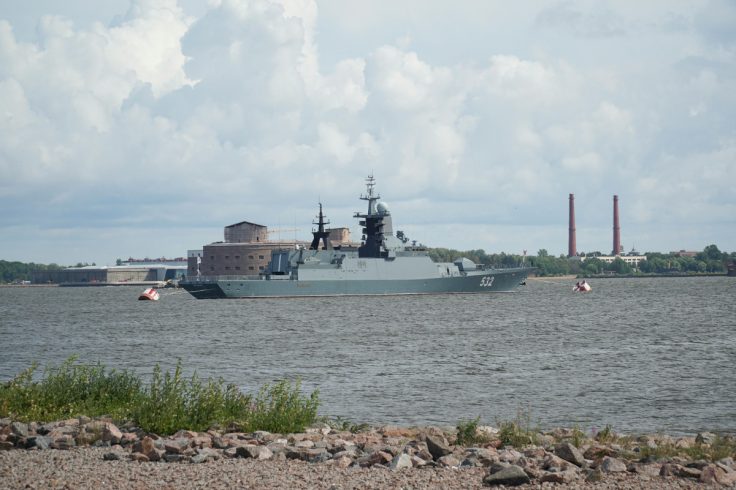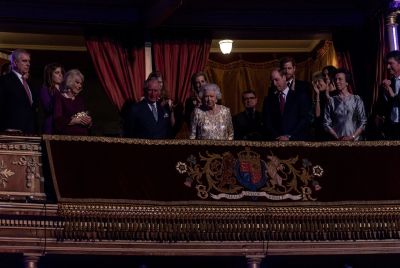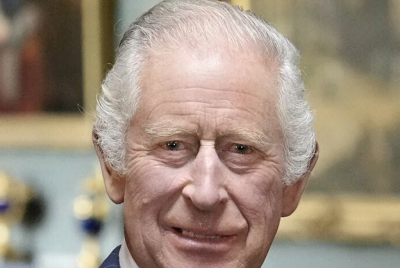Russian Warship Disguised As It Passes Through English Channel - Does It Signal World War Escalation?
Russia's shadow fleet, comprising tankers with obscure ownership to bypass sanctions, has grown since the Ukraine war began.

In an unprecedented move on 20 June 2025, the Russian warship Boikiy, a missile-armed Steregushchy-class corvette, passed through the English Channel, broadcasting a fake ID signal while escorting two sanctioned oil tankers from Russia's 'shadow fleet'.
This movement verified by satellite imagery and reported by The Telegraph on 24 June 2025, has sparked alarm about Russia's intentions.
With tensions already high globally after the Israel-Iran conflict, the Royal Navy shadowed the vessel, raising questions about whether this signals escalation toward a broader conflict.
Expose Russia's Deceptive Tactics
The Boikiy's use of a false Automatic Identification System (AIS) signal to disguise itself as another vessel is highly unusual for a Russian warship, which typically disables transponders entirely.
BBC News reported on 24 June 2025 that the corvette escorted tankers Selva and Sierra, part of Russia's shadow fleet used to evade Western sanctions on oil exports.
Frederik Van Lokeren, a former Belgian navy officer, told The Telegraph that such deception is 'not normal', suggesting an intent to avoid scrutiny while moving through a busy waterway.
The tankers, identified by BBC Verify's analysis of video and tracking data, met the Boikiy at the Channel's mouth on 20 June before passing under Denmark's Great Belt Bridge en route to the Baltic Sea.
On X, users like @BStardAlan called Russia's actions a 'lie', amplifying concerns about transparency.
Confront Sanctions Evasion Strategy
Russia's shadow fleet, comprising tankers with obscure ownership to bypass sanctions, has grown since the Ukraine war began.
Kyiv Post noted on 25 June 2025 that the Boikiy's open escort of these tankers marks a bold shift, as Russia previously avoided such overt naval involvement.
Marine analyst Mark Douglas of Starboard Maritime Intelligence reported coordinated AIS data showing the convoy's movement from 16 June, likely to load oil at Russian ports.
The UK, imposing sanctions costing Russia £32 billion ($43 billion) in oil revenue since 2022, faces a challenge as these tankers dodge restrictions.
The Royal Navy's shadowing of the Boikiy, confirmed by Express, underscores Britain's vigilance, but posts on X, like @jon68806333, dismiss the incident as 'scaremongering', arguing the Navy tracked the ship effectively.
Assess Global Conflict Risks
The Boikiy's actions come amid heightened tensions, with NATO warning of a Russia-China alliance potentially targeting Taiwan.
Some fear this incident could signal Russia testing Western resolve, especially after its S-400 systems reportedly aided Iran during the recent Israel-Iran conflict.
The English Channel, a critical trade route handling £1.2 trillion ($1.6 trillion) in annual shipping, is a sensitive chokepoint, but Russia's reliance on oil exports makes outright conflict here unlikely.
On X, @CoaKatja expressed unease, linking the incident to an oil spill, though no spill was confirmed.
NATO's planned 3.5% GDP defence spending by 2035, announced on 24 June, aims to counter such provocations.
Avert Panic, Maintain Vigilance
The Boikiy's disguised passage through the English Channel on 20 June 2025, escorting sanctioned tankers, is a provocative but not necessarily escalatory act.
Russia's deception, aimed at evading sanctions, tests Western monitoring but falls short of a World War trigger. The Royal Navy's response shows readiness, yet the incident highlights the shadow fleet's challenge to global trade rules.
As tensions simmer post-Iran, staying calm but watchful is key, Russia's economic survival depends on these tankers, not war.
Global stability demands scrutiny of such tactics, but panic won't solve the problem, vigilance will.
© Copyright IBTimes 2025. All rights reserved.




















